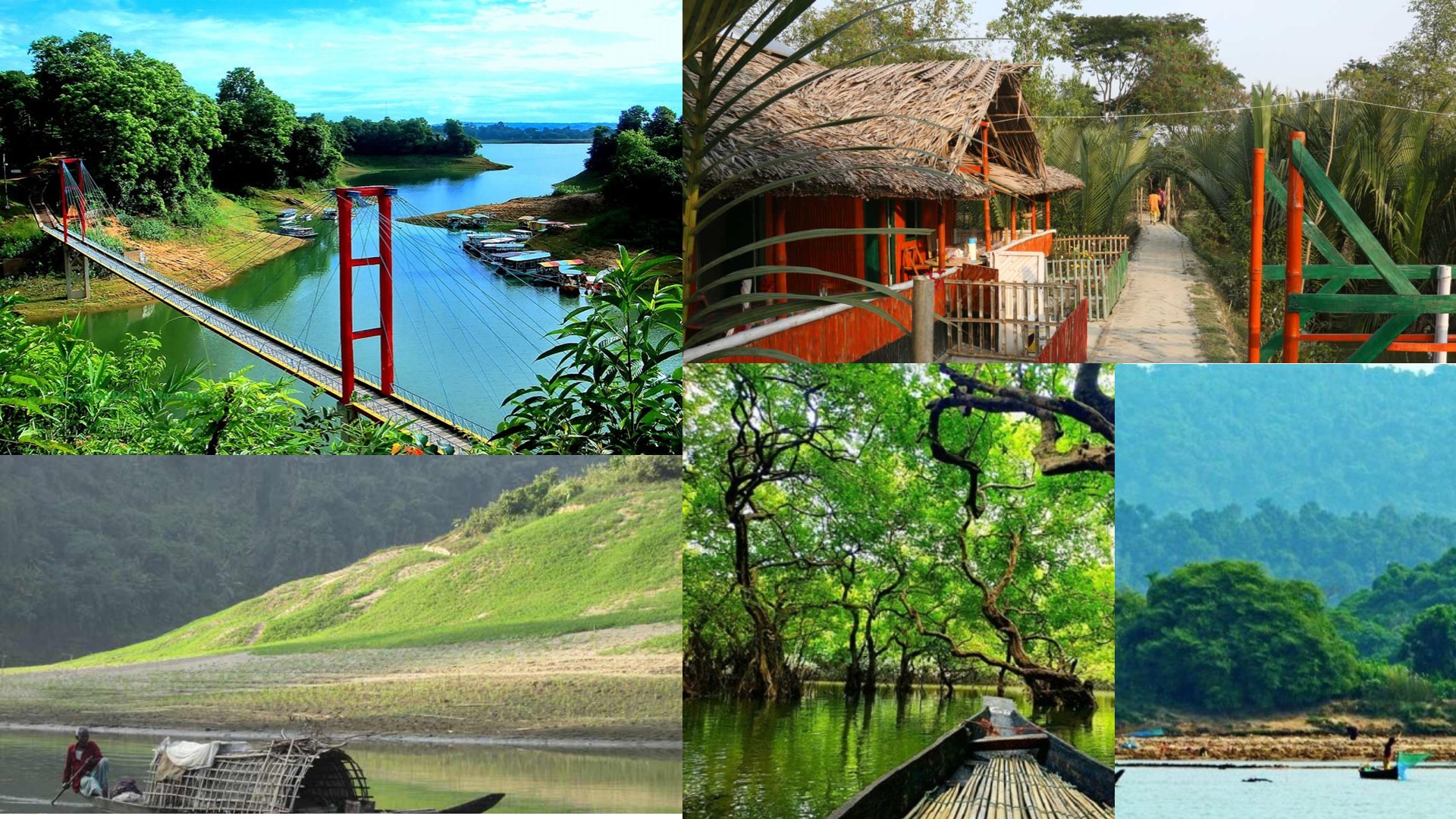Bangladesh’s tourism sector, celebrated for its stunning natural landscapes and rich cultural heritage, is experiencing a significant shift towards sustainability. As global consciousness regarding environmental conservation rises, the tourism industry in Bangladesh is increasingly recognizing the necessity of adopting eco-friendly practices. Hotels and resorts, which form a crucial part of this sector, are leading the charge in this transformation. They are now embracing strategies aimed at reducing their environmental footprint while advocating for responsible tourism practices.
This detailed report delves into the burgeoning trend of sustainable tourism in Bangladesh, examining how hotels and resorts are integrating green practices into their operations. It explores a range of initiatives, from energy-efficient technologies and waste management systems to water conservation measures and the use of sustainable materials. By adopting these measures, the hospitality sector aims to align with global sustainability standards and respond to the growing demand for eco-conscious travel options.
The report also highlights the broader implications of these efforts for Bangladesh’s tourism economy. Sustainable tourism practices not only help preserve the country’s natural and cultural resources but also enhance the overall travel experience by ensuring that it is environmentally and socially responsible. The integration of these practices can attract a new segment of eco-conscious tourists, thereby boosting the industry’s economic prospects while contributing positively to the environment.
In addition, the report examines the role of government policies and incentives in promoting sustainable tourism. It underscores the need for supportive frameworks that encourage hotels and resorts to adopt green practices and for regulations that ensure compliance with environmental standards. By fostering a collaborative approach between the government, industry stakeholders, and local communities, Bangladesh can create a robust foundation for sustainable tourism.
As the country continues to evolve its tourism practices, the shift towards sustainability represents not just a trend but a critical movement towards a more responsible and resilient tourism sector. This transformation is essential for preserving Bangladesh’s natural beauty and cultural heritage for future generations, ensuring that tourism remains a viable and beneficial sector for years to come.
The Growing Importance of Sustainable Tourism
Sustainable tourism is not just a trend; it is a necessity in the face of climate change, environmental degradation, and resource depletion. For a country like Bangladesh, which is vulnerable to the impacts of climate change—such as rising sea levels, floods, and cyclones—sustainable tourism plays a vital role in protecting its ecosystems and supporting its economy. The tourism sector, particularly in regions like Cox’s Bazar, the Sundarbans, and the Chittagong Hill Tracts, must strike a balance between welcoming tourists and preserving the natural environment.
Environmental Impact of Tourism in Bangladesh
Tourism, while beneficial to the economy, can have significant environmental consequences. In popular tourist destinations, increased foot traffic, waste generation, and unregulated development often result in environmental degradation. For example, Cox’s Bazar, the world’s longest natural sea beach, has faced pollution and habitat loss due to unchecked tourism growth. The unplanned construction of hotels and resorts along the coastline, coupled with the excessive use of plastic and poor waste management, has put tremendous pressure on the local environment.
How Hotels and Resorts Are Embracing Sustainability
Recognizing the need for change, many hotels and resorts across Bangladesh are embracing sustainability by adopting green practices that reduce their environmental footprint. These initiatives are aligned with global efforts to promote eco-tourism and meet the growing demand from environmentally conscious travelers.
- Energy Efficiency and Renewable Energy: One of the key areas where hotels and resorts are making strides is in energy consumption. Many establishments are investing in energy-efficient technologies, such as LED lighting, energy-saving appliances, and motion sensor lighting systems to reduce energy use. Additionally, some hotels are exploring renewable energy sources, like solar panels, to power their facilities. Solar-powered water heating systems and solar lighting in outdoor spaces are becoming increasingly common in eco-friendly resorts.
- Water Conservation: Water scarcity is a growing concern in Bangladesh, particularly in tourist-heavy areas. To address this, many hotels are implementing water conservation measures, such as low-flow toilets, faucets, and showers. Rainwater harvesting systems are also being installed to capture and reuse rainwater for landscaping, cleaning, and other non-potable purposes. Some resorts are treating wastewater on-site and recycling it for use in gardens and other areas, reducing their reliance on freshwater sources.
- Waste Management and Reduction: Waste management is a critical component of sustainable tourism. Many hotels and resorts are now adopting zero-waste initiatives, encouraging guests and staff to reduce, reuse, and recycle. Plastic waste, in particular, is being targeted, with many establishments eliminating single-use plastics like straws, water bottles, and packaging materials. In place of plastic, hotels are offering reusable alternatives, such as glass water bottles and biodegradable packaging. Additionally, composting programs are being implemented to handle organic waste, which is then used for landscaping purposes.
- Sustainable Sourcing and Local Communities: Sustainable tourism also emphasizes supporting local communities. Hotels and resorts in Bangladesh are increasingly sourcing food and materials locally, reducing the carbon footprint associated with transportation and promoting the livelihoods of local farmers and artisans. Many eco-resorts partner with nearby villages, offering cultural tours and locally made handicrafts to tourists, which enhances the community’s economic opportunities while preserving cultural heritage.
- Green Building Practices: New hotels and resorts are being designed with sustainability in mind, incorporating eco-friendly building materials and green construction practices. These include the use of recycled materials, natural insulation, and energy-efficient architecture that takes advantage of natural light and ventilation. In some cases, resorts are using bamboo, jute, and other local materials to create structures that blend harmoniously with the natural environment. Green roofs and vertical gardens are also becoming popular, providing insulation and reducing the urban heat island effect in densely populated tourist areas.
- Eco-Friendly Certifications: Many hotels and resorts are seeking certifications that validate their commitment to sustainability. Certification programs like LEED (Leadership in Energy and Environmental Design), Green Key, and EarthCheck provide guidelines and recognition for establishments that meet high environmental standards. These certifications not only help hotels reduce their environmental impact but also attract eco-conscious travelers looking for sustainable accommodations.
Challenges to Achieving Sustainability in Tourism
While the efforts of hotels and resorts are commendable, there are still several challenges to achieving widespread sustainability in Bangladesh’s tourism sector. One major issue is the lack of comprehensive government regulations and enforcement regarding environmental protection. Many areas still suffer from unchecked development and pollution due to weak oversight. Additionally, the high cost of implementing sustainable technologies and practices can be a barrier for smaller hotels and guesthouses, which may lack the financial resources to make the necessary changes.
Another challenge is raising awareness among tourists themselves. While there is a growing number of eco-conscious travelers, many tourists are still unaware of the environmental impact of their activities. Educating visitors about sustainable tourism practices, such as minimizing waste, conserving water, and respecting local ecosystems, is essential to ensuring that tourism growth does not come at the expense of the environment.
The Future of Sustainable Tourism in Bangladesh
The future of sustainable tourism in Bangladesh holds immense potential as more hotels and resorts integrate green practices into their operations. This growing trend reflects a broader shift in the tourism industry, where both government and private sector stakeholders increasingly understand the importance of long-term environmental stewardship. Bangladesh, with its diverse natural beauty—from the world’s longest sea beach in Cox’s Bazar to the biodiverse-rich Sundarbans mangrove forest—has a unique opportunity to develop eco-tourism that not only generates economic benefits but also protects its rich biodiversity and natural resources.
To fully harness this potential, it is crucial that the tourism sector embraces a comprehensive approach to environmental sustainability. This means prioritizing measures like reducing carbon footprints, managing waste efficiently, conserving water, and minimizing the impact of tourism on local ecosystems. Hotels and resorts must invest in green infrastructure, such as solar energy, water recycling systems, and sustainable building materials, ensuring that their growth does not come at the cost of the environment. Additionally, partnerships with local communities can play a vital role in preserving natural and cultural heritage, ensuring that tourism is not only eco-friendly but also socially responsible.
Government intervention is key to supporting these efforts. Policymakers must create incentives for eco-friendly tourism businesses, offering tax benefits or subsidies for those that adhere to environmental standards. At the same time, stricter regulations and enforcement must be in place to combat illegal deforestation, over-tourism, and pollution. Public awareness campaigns that highlight the importance of sustainable tourism can further engage citizens, encouraging tourists to opt for eco-friendly travel options.
In the coming years, Bangladesh’s ability to successfully balance tourism growth with environmental preservation will be critical. If done right, the country can position itself as a leading destination for sustainable travel, drawing environmentally-conscious travelers from around the world while safeguarding its natural treasures for future generations. The road ahead requires commitment from all sectors—government, industry, and local communities—but with concerted effort, sustainable tourism in Bangladesh can flourish, benefitting both the economy and the environment.
Bangladesh’s hotels and resorts are taking significant steps to go green, aligning with the global movement toward sustainable tourism. Through energy efficiency, water conservation, waste reduction, and community engagement, these establishments are contributing to a more sustainable future for the country’s tourism industry. However, continued efforts from both the private and public sectors are needed to overcome the challenges and ensure that tourism in Bangladesh grows in harmony with the environment. By embracing sustainability, Bangladesh can position itself as a leading destination for eco-conscious travelers and protect its natural beauty for future generations.

 A.B.M. Abir
A.B.M. Abir 



















